One of the current narratives circulating in policy circles nationally and in the state is that schools and colleges of education are bastions of the status quo,

unwilling or unable to change. At Carolina, nothing could be further from the truth. We are deeply engaged in rethinking how we best achieve our primary goal: To help ensure that every student has access to the powerful educational resources and supports they need to succeed.
This goal and responding to the rapidly changing world of education drive us to innovate, invent, and create. This is evident in the many interventions and programs we develop for teachers and students, our instructional programs, and our research.
I have previously written about how faculty and graduate students are capitalizing on technology to improve our outreach to schools as well as instruction. The Targeted
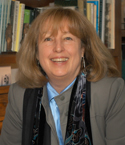
Reading Intervention that Lynne Vernon-Feagans developed with colleagues is making a difference for K-2 readers all over the state and nation. TRI involves the creative use of the Internet and computer technology to enable reading experts in Peabody Hall to coach, from a distance, teachers as they work with struggling readers in the early grades. It is the epitome of “just-in-time” support for teachers. The data from Halifax County and other low-performing rural North Carolina schools reflect what Lynn and her colleagues learned from their trials around the country: TRI helps struggling readers catch up with their peers.
Based on their research on the challenges students face transitioning to middle school, Jill Hamm and her colleagues created an innovative professional development
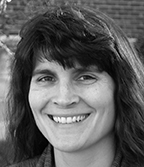
program. The SEALS project helps 6th grade teachers create classrooms that support students as they adjust to middle school. Teachers learn evidenced-based approaches to increasing students’ academic engagement, enhancing positive classroom behaviors, and promoting positive peer relationships.
Long an innovator in working with elementary teachers on mathematics teaching, Susan Friel, in response to the new Common Core State Standards, is bringing together SOE
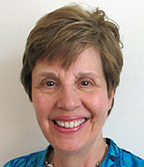
faculty and students with teachers at New Hope Elementary School to deepen participants’ content and pedagogical knowledge in mathematics. Student teachers and cooperating teachers are participating in book study together, creating a foundation for collaboration on the more ambitious mathematics instruction that the Common Core demands.
For the SOE students, the project represents a model of learning to teach distinctly different from the typical student teaching experience. To learn more about the
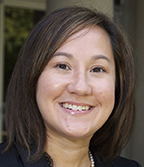
impact that such a collaboration can have, Gemma Mojica is collecting data on the participants’ mathematical understanding and classroom practice.
As school districts, including Guilford County, invest in tablets for the classroom, Janice Anderson and Julie Justice are leading a team of 12 researchers in a project
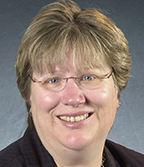
with Durham Public Schools to collaborate with middle-grades teachers to learn more about the potential for this technology to transform teaching and learning. Stories are emerging from early adopters that, for a variety of
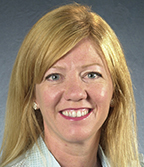
reasons, tablets end up being merely digital replacements for traditional textbooks. Janice and Julie plan to explore the value of tablet technology for students to create knowledge, not just to locate and use existing knowledge.
In some classrooms around the world, students are using the video, audio, and multimedia capabilities of tablets to represent their ideas and experiences and those of others. Even with young children, tablets have been shown to be useful in helping students become more conscious of their own thought processes – or, to use educational jargon, more meta-cognitively aware. Students who are more meta-cognitively aware are better able to decide for themselves whether they truly understand an idea or process – and to self-regulate and self-correct.This represents but one way that tablets can be used to enhance student creativity and innovation – the very qualities Janice and Julie, in collaboration with classroom teachers, hope to cultivate.
Steve Knotek, in collaboration with colleagues at Duke and N.C. State, is working with Orange County and Chatham County schools to support greater understanding and
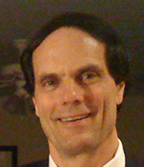
cooperation between immigrant Latina mothers and teachers. This project, with funding from the U.S. Department of Education’s Institute for Educational Science, builds on an earlier project, Madres para Ninos, in which Steve and his colleagues worked closely with Latina mothers to help them become more deeply engaged with their children’s schooling.
English language learners, or ELLs, are also the target of Kelly Ryoo’s work. Understanding the barrier that scientific terminology posed to students, especially those
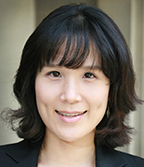
for whom English is not their first language, Kelly has created computer-based dynamic visualizations of scientific processes such as photosynthesis. The tool allows students to manipulate icons representing the various components of natural systems and processes such as photosynthesis, thereby learning how the process works before attempting to master the language of science. Research shows that not just ELLs but all students who use Kelly’s dynamic visualizations master critical scientific concepts better than those who learn from conventional textbook-based instruction.
Henry Adams, the first professor of history at Harvard, once observed that in order to truly understand history writ large, students first must understand themselves as products of their own history. This is precisely the goal of a new partnership that LEARN NC, the UNC American Studies Department and Carolina Digital Literacies have created with Ancestry.com. LEARN staff will work with campus partners, teachers and Ancestry.com – which boasts the largest genealogical database available on the Internet – to create unit and lesson plans as well as other instructional materials for classroom use. This collaboration will make Ancestry.com’s rich archival resources available to teachers and students virtually everywhere.
This is but a sampling of the many innovations that School of Education faculty, staff, and students have created that are having positive impacts on students, families, teachers, and schools in North Carolina and across the country. All of us in the School understand that we must both adapt to and lead change – and we are.
Far from being a bastion of the status quo some claim, the School is pushing forward the frontiers of research and development and creating scientifically grounded programs, tools, and professional development that we are confident are making a difference.
Bill McDiarmid is dean of the School of Education at UNC-Chapel Hill.